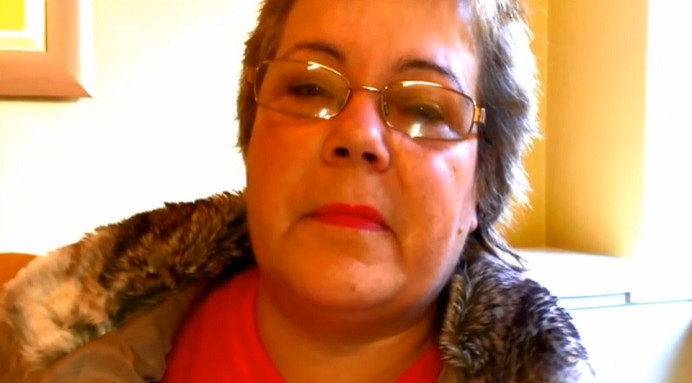Deborah Ballard Suffers Stroke, Wakes Up With Welsh Accent From ‘Foreign Accent Syndrome’

A British woman who suffered from a stroke in February awoke with an unusual speech problem: a Welsh accent.
According to the Daily Mail, 53-year-old Deborah Ballard of Eastbourne, East Sussex, experienced an extremely rare but documented medical condition known as foreign accent syndrome, in which the sufferer’s speech patterns are altered in ways that can sound similar to a foreign accent. The disorder is most commonly triggered by traumatic brain injuries or strokes.
The change in Ballard's speech didn’t take place until Sunday, roughly eight months after her February stroke, when she experienced a transient ischemic attack, or a “mini stroke.” Ballard regained consciousness after that episode to learn that her voice had altered.
She first noticed the new accent when she tried calling her pets to her side. “It wasn't until I called the animals in that I realized my voice had changed,” she said. “I texted my husband and told him not to be surprised when he came home as I had a bit of an accent.”
“I got a bit embarrassed about it at first, but everybody who has heard me said they think it's sweet,” Ballard added. She said her doctor had told her not to worry about the change as long as it didn’t cause her any physical pain.
As for her new accent, it’s reportedly a mixture of accents from around Britain.“It’s the strangest thing. I’ve never even been to Wales, or Scotland or Liverpool, yet people keep telling me that I sound just like them,” she said. “There are certain words I can’t say at all. 'Cat' always comes out as 'cot' now, which is a bit annoying, because I’ve got pet cats.”
“I hope it does [go away],” she added. “It was devastating at first. I have to admit I had a cry. And then it got funny for a while, but now it’s starting to get old again. My husband joked that he married me because I was a Londoner, and if he wanted to marry a Welsh girl he would go and live there. I want it back to normal now.”
Ballard said that she has since begun to adapt to the new accent, its appearance caused her an enormous shock. “I must admit when I was talking I was looking in the mirror and talking to myself, I was trying to work it out and was getting a bit upset,” she said. “I can see the funny side of it all now.”
While this not the first medical case of its kind, foreign accent syndrome is a markedly rare disorder. The University of Texas at Dallas defines the syndrome as a “speech disorder that causes a sudden change to speech so that a native speaker is perceived to speak with a ‘foreign’ accent,” and according to National Public Radio there are only 100 other instances of the syndrome on the books since World War II.
The most famous case of foreign accent syndrome was a that of a 28-year-old Norwegian woman who was struck in the head by shrapnel during World War II. The injury occurred during an air raid in 1941, and though the woman survived the incident, she afterwards developed a German accent that caused her to be ostracized.
Another case occurred in Oregon in 2011, when a woman was put under anesthesia during dental surgery, and woke up with an accent described as “a hodgepodge of English, Irish and perhaps a bit of other European accents.”
The syndrome has in some cases cleared itself up and can also sometimes be helped through intensive speech therapy.
View video of Deborah and Guy Ballard below.
© Copyright IBTimes 2024. All rights reserved.





















